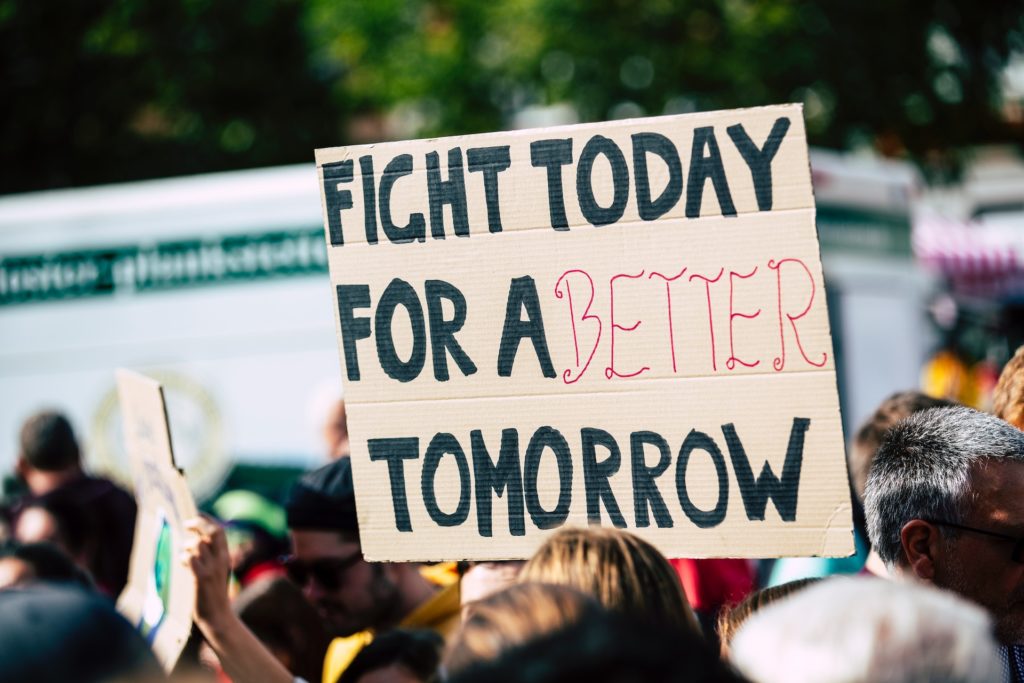
The phrase ‘carbon footprint’ was born from another related concept. Canadian ecologist William Rees and Swiss-born regional planner Mathis Wackernagel from the University of British Columbia came up with the term ‘Ecological Footprint’ (EF) in the early 1990s to talk about the total area of land required to sustain a human activity or population of people. This calculation measures the requirements for productive areas, meaning croplands; grazing land for animal products; forested areas for wood products; marine areas for fisheries; built-up land for housing and infrastructure; and forested land needed to absorb carbon emissions. The EF is measured in global hectares (gha) at various scales: for individuals, regions, countries, and humanity as a whole. The resulting figures can also be compared with how much productive area—or biocapacity—is available. This means that the EF can be used to establish if a certain region is in fact ‘in debt’ to other regions for their ecological capital. That is, if they consume more that their region’s own biocapacity would allow. So the application of the same sentiment for our footprint on the Earth when it comes to carbon emissions, makes sense. Thinking in global terms then, is reducing your carbon footprint helpful for the overall health of our planet?
Yes.
Each personal action does have an impact. Not a huge impact when looking at each action separately. However, a gushing waterfall is only such due to millions of single droplets. Millions of individual actions add up, and we can create a gushing waterfall of positive change.
However, that doesn’t mean that the actions of governments and corporations should not be taken into account. The proverbial buck doesn’t stop with individuals. Nor does it for large organizations. Reducing atmospheric carbon to a point where the planet can safely support human life is a team effort.
It is the tactic of a climate delayer to remove responsibility from either individuals or corporations. It’s easier to delay climate action if the stakeholders are divided and finger pointing. And to be clear, every human on this planet is a stakeholder, whether they acknowledge that or not.
This delaying and finger pointing was first implemented, with great success, in the early 2000s. British Petroleum, BP, launched ads which turned the phrase ‘carbon footprint’ into one huge finger, pointing directly at you and your parents in a shameless blame campaign for the state of atmospheric carbon and global warming. If only YOU would measure and reduce YOUR carbon footprint, humanity’s future on Earth would be protected. Hoo boy. If ever there was marketing evil genius at work, this was it! Lucky for you, BP was so supportive of YOU making changes in YOUR life they even produced a carbon footprint calculator. For you. They were too busy drilling and spilling and killing to do any calculations on *their* daily travel, obviously.

It’s important to note that their carbon footprint calculator is inaccurate due to being vague and lacking detail. It only looks at transport, asking a few questions about your mode of travel and annual average distance. And just when you thought it couldn’t get any murkier in BP’s greenwashing playbook, once you ‘calculate’ your footprint they give you the opportunity to pay them to offset it. So perhaps give this one a go instead of BP’s, which you can read more about here.
From the introduction of this campaign onwards, it’s been commonplace to talk about personal accountability, personal choices and personal carbon footprints. This is not a bad thing! Just like we take personal responsibility for the foods we eat to ensure our body’s health, so too we must make decisions which aren’t counter-productive to the health of our planetary home. If we can’t personally improve Earth, the least we can do is not harm her. This is feasible by changing the things in our lives which we can, like avoiding single use plastics; using public transit, cycling or walking instead of jumping in a car; and eating less (or no) meat.
Simultaneously, however, we must demand system and policy change so that corporations and governments are held to the same high bar which we now apply to ourselves. Living within the constraints of current systems there’s simply not enough opportunities for personal emissions reductions to impact global atmospheric carbon.
Personal and societal accountability are two sides of the same coin. One without the other, whichever way round, is not going to achieve what we need to.
As a climate warrior and sustainability educator, I believe it’s truly dangerous to try to assign blame and point fingers. We have to see the noise, being led and fed by the fossil fuel industry and their proponents, for what it is: a delaying tactic. I can, and must, petition for corporate accountability and societal change at the same time as ditching single use plastic from food and personal care product packaging. I must march on the street to add mine to the millions of other concerned voices while also eating plant-based and composting . And I implore you to do the same.

A political scientist at Harvard University, Erica Chenoweth, extensively researched the efficacy of non-violent protest when eliciting important political change. She found that non-violent means led to the desired outcome twice as often as violent action. But even more strikingly, Chenoweth found that to achieve the political change required, only 3.5% of the population need to actively participate! That is surely encouraging and good motivation for us all. Non-violent action is also more than accessible for participants, allows more free discussion around the subject, and therefore leads to more people being willing to get involved.
Counting your carbon is a genuinely important step to reducing global atmospheric carbon. Measuring your workplace’s emissions in order to reduce them is genuinely important in the fight against the climate crisis. Demanding government, corporate and societal change to support carbon emissions reductions is also genuinely important to avert global climate catastrophe. Personal and societal accountability are not mutually exclusive.



